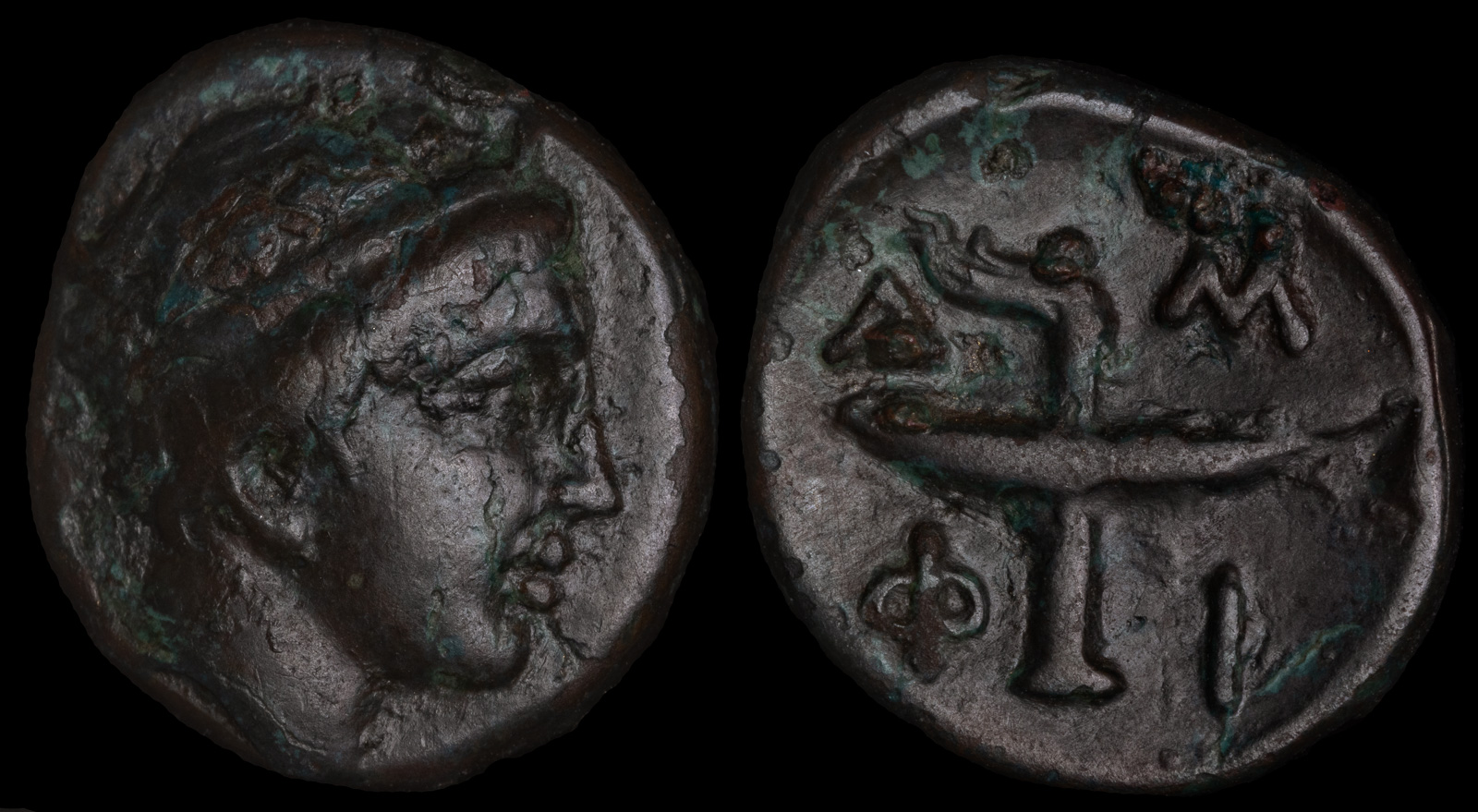Torch
View All Tags
The torch also had significant ritualistic importance in Greek religious ceremonies. One of the most famous rituals involving the torch was the Torch Race held during the Panathenaic Games in Athens, a festival dedicated to the goddess Athena. In this race, participants would carry a torch and pass it from one runner to the next, symbolizing the transmission of light and knowledge as well as the honoring of the goddess. The lighting of sacred fires during important events, such as sacrifices, would be conducted with torches, highlighting their role in connecting the human and divine worlds.
Additionally, the torch was connected to the concept of rebirth and life after death. In the realm of the Underworld, torches were used by souls to guide their way through the darkness. The torch thus represented a passage from life to death, offering illumination in the shadows of the afterlife. The torch also appeared in the rites of Demeter and Persephone, especially during the Eleusinian Mysteries, where it symbolized the cycles of nature, agricultural renewal, and the hope for life beyond death.
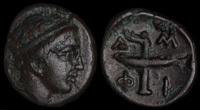
Amphipolis, Macedon 355-353 BCE

Antoninus Pius 158-159 CE

Apollonia ad Rhyndakum, Mysia 2nd-1st century BCE
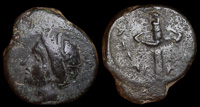
Aptera, Crete 3rd-2nd cent BCE
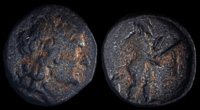
Corinth 248-243 BCE
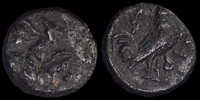
Dardanos, Troas 4th-3rd century BCE
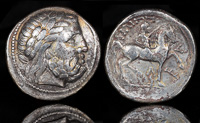
Gauls 315-275 BCE
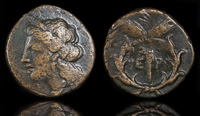
Hermione, Argolis 360-310 BCE

Kabyle, Thrace 275-250 BCE
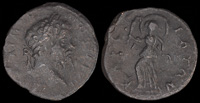
Kaphyai, Achaia 193-211 CE
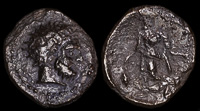
Mallos, Cilicia 4th century BCE
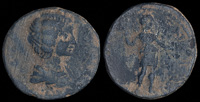
Orchomenos, Arkadia 193-217 CE
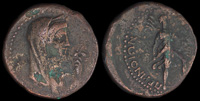
Perinthos, Thrace 2nd-1s centuries BCE
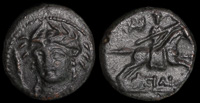
Pherai, Thessaly 300 BCE

Proerna, Thessaly 4th-3rd centuries BCE
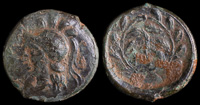
Thyrrheion, Akarnania 350-300 BCE
